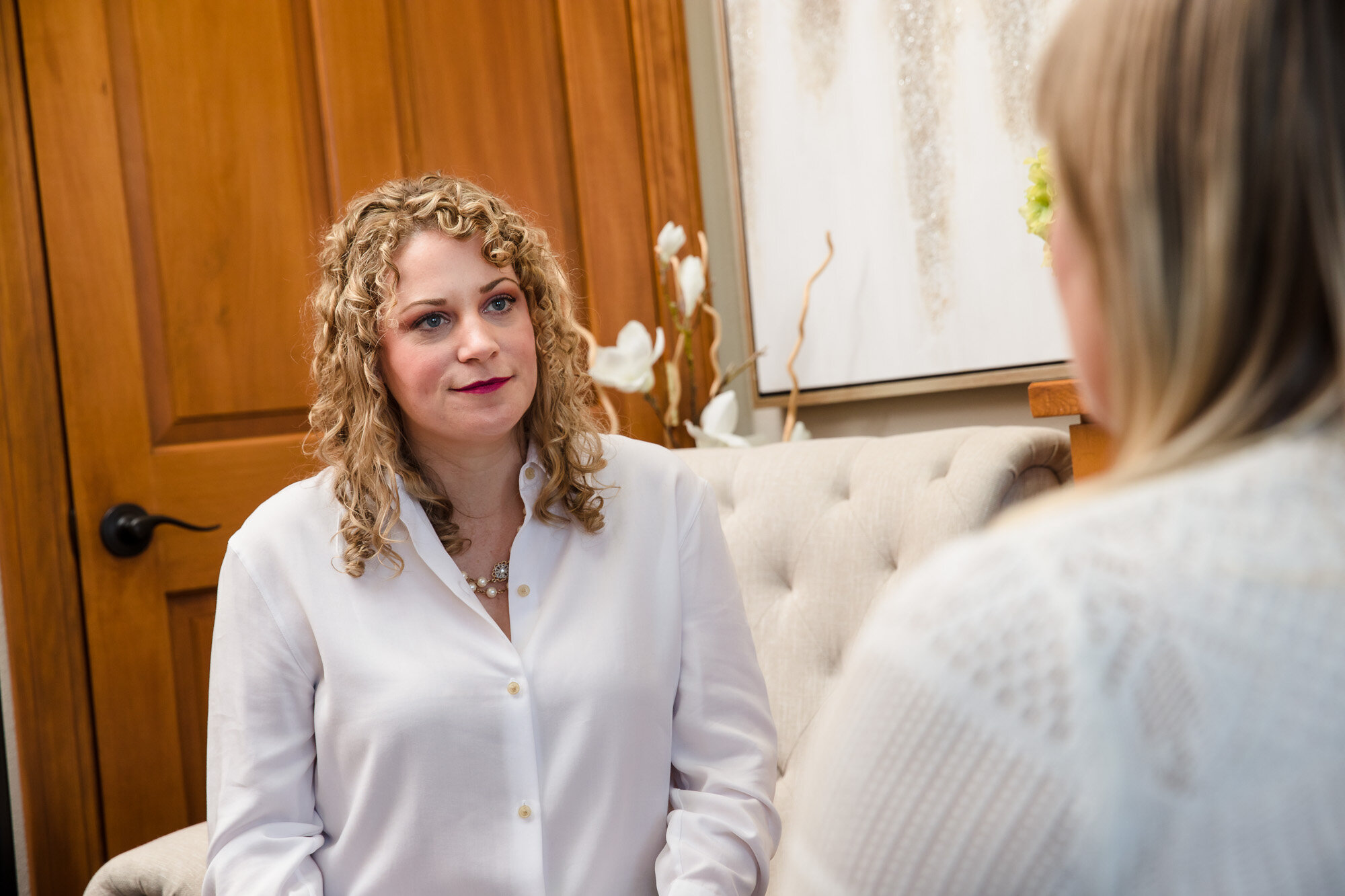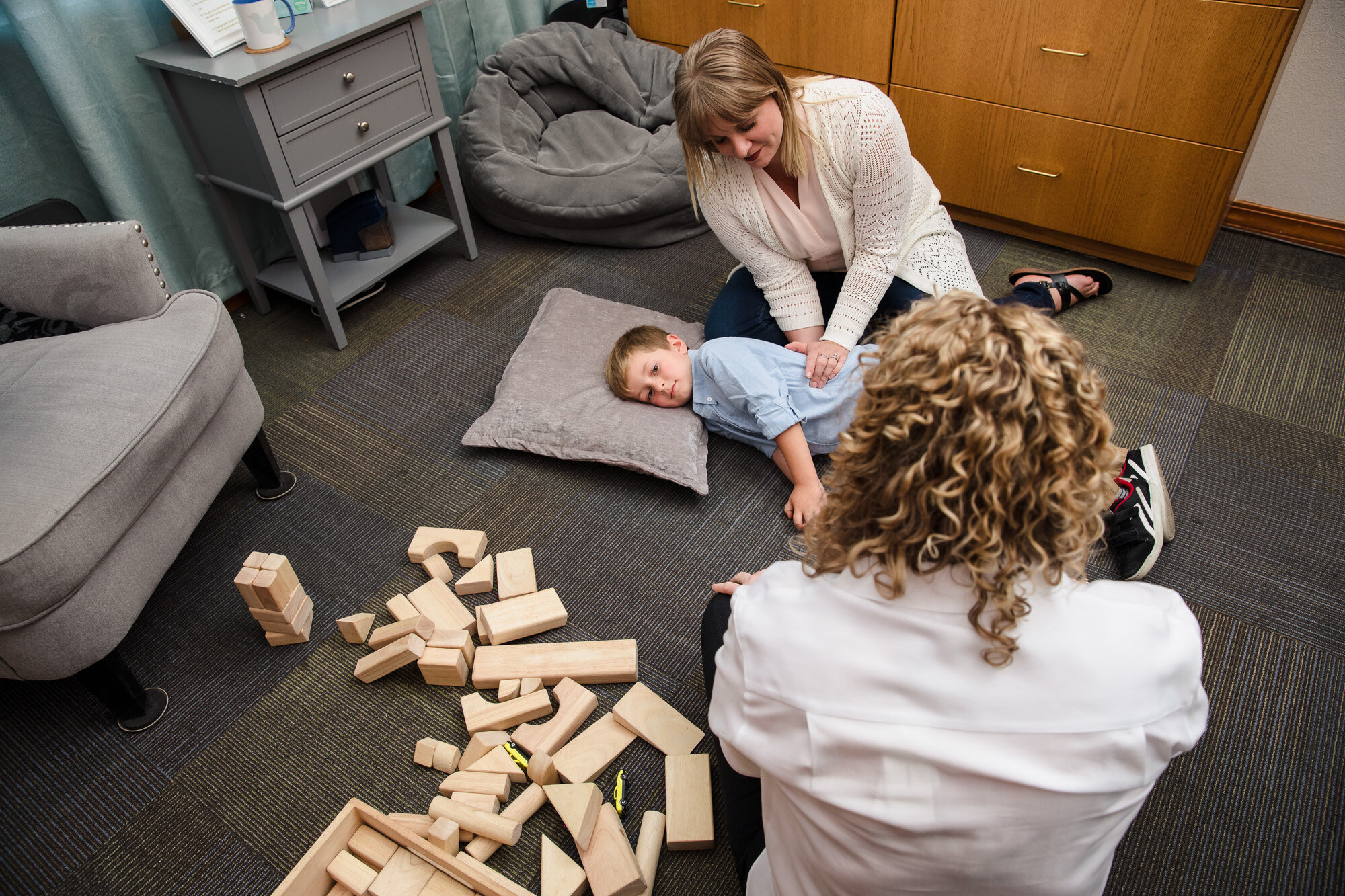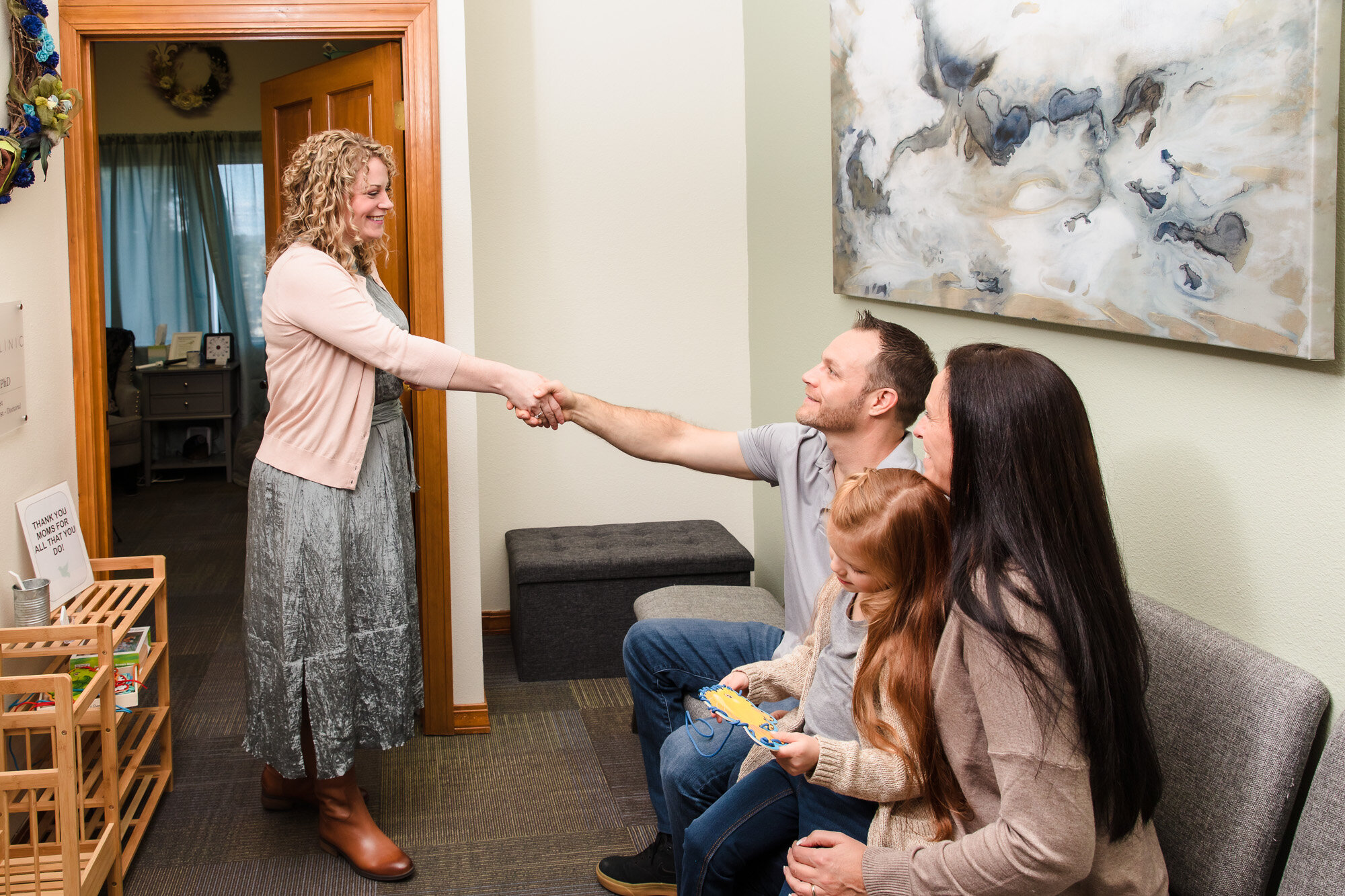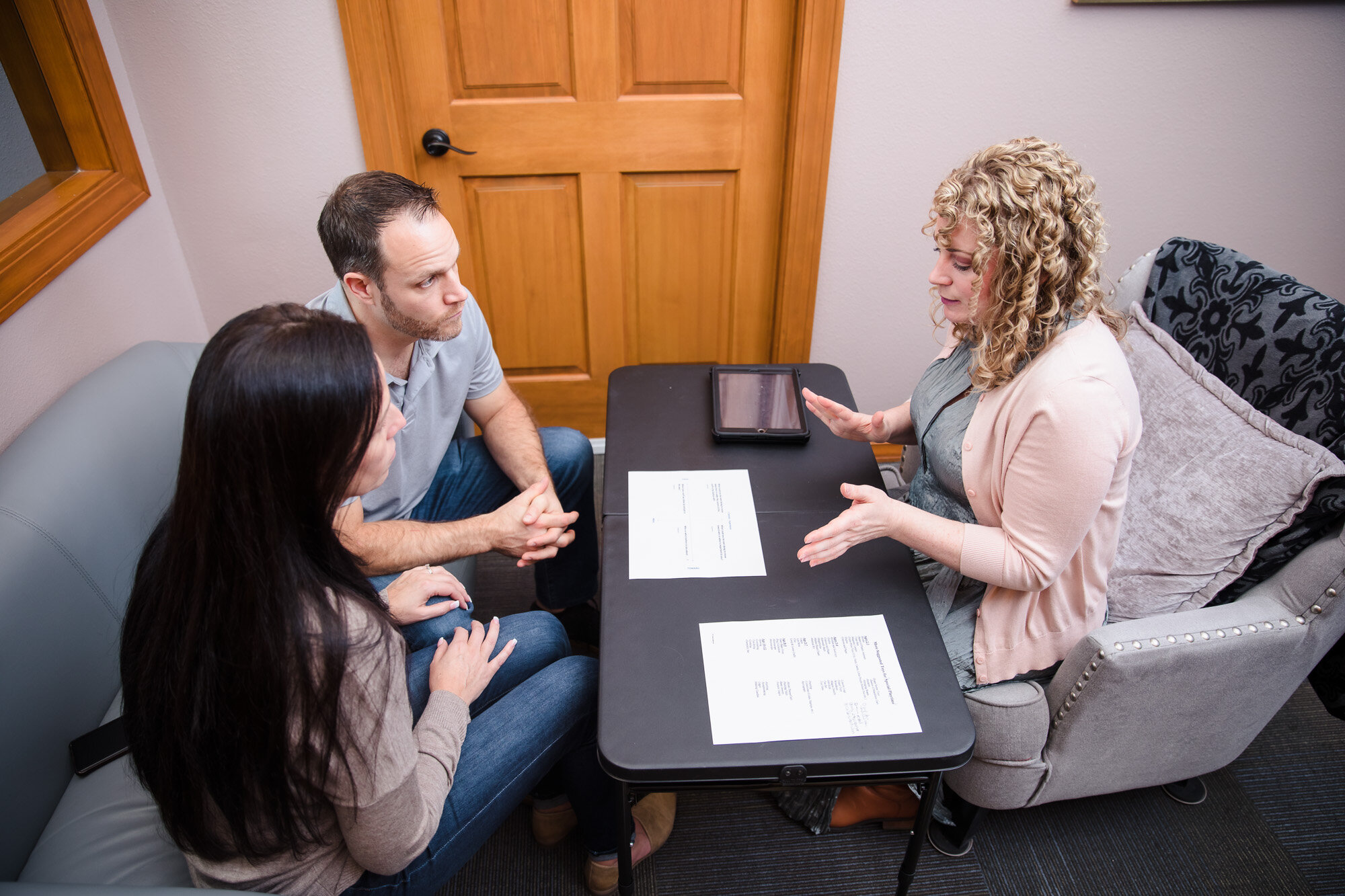Dr. Blevins discusses how ACT, Acceptance and Commitment Therapy, describes emotional blocks and supports individuals with pushing through them. She uses a personal example to help illustrate this learning topic and to support moms this Mother's Day as they might be working through heighten stressed due to stay home orders across the country. Emotional blocks can be when we're experiencing a block from our values and have negative feelings as a result.
Read MoreTeach Your Child to Follow Directions
I'm so excited to share with you a new e-learning tool I've developed, the How to Teach Your Child Directions e-Learning Packet. It is a free step-by-step guide of how to give effective directions to young children and how to respond to them to increase child compliance. The packet is for parents and teachers. It goes through the rationale for each step and gives examples and non-examples. I also give you pro-tips for creating your own two-week plan for using what you learn and noticing the change in your child and yourself. When you sign up to get the packet, you'll also get five emailed pro-tip videos across two weeks giving you additional information on how to stay motivated and effectively use the packet information. The e-learning packet is based on information from applied behavior analysis, acceptance and commitment therapy, and parent-child interaction therapy.
Read MoreParent's Biggest Fear #2 re: Child Therapy: Is my child crazy?
Dr. Blevins discusses another common fear brought up by parents when they've been told by someone, often well meaning, that their child may need therapy or counseling. This fear is that their child may be "crazy" or have something permanently wrong with them. Dr. Blevins discusses how this is not the correct outlook, especially with children. Children are developing rapidly, and often therapy is meant to intervene and get them back on track. With most DSM-5 disorders for children, the symptoms can be remediated with evidence-based, high-fidelity interventions, or therapy. A new way of thinking of therapy is coaching for the soft skills in life, like emotional, social, executive functioning, and language skills, that a child will need to be successful. This is similar to having a physical trainer, a coach for a sport, or a tutor in math.
Read MoreA Parent's Worst Fear When Their Child Needs Therapy
Dr. Blevins discusses the first fear many parents encounter when learning their child may need therapy. Often parents want to know why their child has developed the difficulties they have. This is totally normal! Many parents also take on total responsibility for every outcome in their child's life, leading them to have a deep fear about their own involvement in their child's difficulties. This learning video is about Dr. Blevins experience with many families as they start the therapeutic experience, accept what they can control and what they can't, and learn to embrace self-compassion while owning responsibility for interventions.
Read MoreSelf-Care is a Mindset
Learn about how to do self-care when you don’t have time to brush your teeth, let alone take a leisurely bubble bath. Dr. Blevins uses Acceptance and Commitment Therapy concepts to teach psychological flexibility concepts as they relate to anxiety, overwhelm, and stress with rigid schedules and hectic responsibilities that parents are facing during normal life and especially pandemic life. A focus on identifying value tokens, defusing from stuck thoughts, and committed action are addressed.
Read MoreFunctional Academics During Isolation: Reduce Stress
Functional academics are the basic life skills that academic learning helps us to do competently. This gets right to the point of academics. It's where the classroom meets real life. Does your child understand why and how they might use academics in real life? Homeschooling can be fun because you can focus on exploring more rather than rote practice. Maybe you do some FUN activities at home to demonstrate the usefulness of academics (while getting them to do a little reading or math). This includes cooking, grocery shopping, fixing things around the house, getting dressed, learning routines, etc. These types of activities build math skills, reading, organization, memory, and social skills. You can go to previous Enilda Clinic videos about praise to learn more about how to really target these skills when you're doing functional academics. Be creative and take pressure off yourself and your child to sit for hours doing school work by focusing on the functional parts of academics.
Read MoreYour Golden Opportunity as a Crisis-Homeschool Parent
Dr. Blevins describes the hidden opportunity parents have as they are taking on instruction roles during isolation. Specifically parents have a first-observer role watching their children learn. This allows them to see how their children learn best and what doesn’t work to support them best. If your child is in regular or special education, this type of information will be valuable for advocating for your child next school year with his or her teacher. You have the opportunity to collect data to support your child’s teacher in making evidence-based decisions. Additionally you have the opportunity to try out new strategies that typically aren’t used in the classroom. Be sure to keep notes, or data, about what you’re observing so that you can support your child and their teacher next school year.
Read MoreSportscast Your Child's Play to Build Their Attention
This video is for parents of young children or other caregivers working with young children. Dr. Blevins discusses how to use verbal descriptions of your child's play, similar to how sportscasters describe athlete's plays, to help children stay focused. This strategy can support your child in learning to attend to various new parts of a toy or in more complex interactive play, it helps build sustained attention, and helps reduce impulsive movement from toy to toy.
Read MoreHow Parents Can Teach Kids to Apologize
Many parents want their children to understand the underlying values behind apologizing or saying "I'm sorry". They try to help their children to engage in apologizing by encouraging the behavior from an early age. But often I see a paradoxical effect where children experience resentment, agitation, anger, and relationship distancing when they are made to apologize. This video discusses how parents can decide for themselves what values they intentionally want to teach by encouraging the behavior of apologizing, and how to teach apologizing to emphasize those values with toddlers and preschoolers. We discuss modeling, praise, approximations of the goal behavior, rehearsing, and value labeling as strategies parents may want to consider.
Read MoreHow a Psychologist Does Self-Care After Two Weeks in Isolation
Dr. Blevins tells you how she's engaging in self-care this week. Needs may change as the pandemic changes or isolation is prolonged. Each person should consider where they need support in their life and strive to create ways to provide self-compassion and active coping through self-care that best suits them.
Dr. Blevins' personal strategies include:
1. Taking time for personal life every day. No more workaholic lifestyle. 2. Doing physical tasks/activities that create an inner monologue of caring for one's self, like cleaning the home, doing fun personal grooming, etc. 3. Daily outside exercise 4. Creating space for normal everyday topics 5. Using a heating pad as recommended by a pharmacist to reduce eye strain and tension headaches from increased online work 6. Call people in my social network more often. Recognizing that they are wanting the support as much as me.
Read MoreHow Telehealth Therapy Can Support You & Your Child During COVID-19 Pandemic
Learn how telehealth therapy is set up, specifically for therapy with parents and young children. Learn how Dr. Blevins thinks about approaching parent training and engaging children in telehealth, managing safety, and keeping care to provide medically necessary treatment.
Read MoreIs Reinforcement Bribery?
When you give your child reinforcement for completing a hard task or tolerating a new, higher difficulty situation is that really just bribery?? Parents want their children to be intrinsically motivated and values-centered in their choices to do "the right thing." But, how do you teach that? Dr. Blevins chats through the differences between reinforcement and bribery with children, and how a parent might consider these concepts when intentionally interacting with their child.
Read MorePreventing Tantrums
I'm discussing the prevention of tantrums in young kids thru the use of language building. I'll specifically hit on Functional Communication Training, or teaching your child to use language to get their needs met instead of using the tantrum behavior. This is a preventive strategy designed to help the kid see language as an easier and more effective means to getting what they want than tantruming.
Remember that all Enilda Clinic learning videos are just for educational purposes. If you have a specific concern, ask your child's pediatrician about how to proceed or seek specialized support by establishing services with a specialized provider. Enilda Clinic is home to Dr. Leslie Blevins, a licensed psychologist and BCBA-D in Spokane Wa serving children and parents. Learn more at EnildaClinic.com or call at 509-844-0002. We're located at 705 W 7th Ave, Ste D, Spokane, WA 99204.
Read MoreParenting and Video Games
I chat with many parents who are concerned about their child's use of video games. In today's learning video I discuss what signs to look out for that may indicate you want to change things up at home related to video games, a framework for thinking about video games in the context of other life activities, and whether video games can be thought of as addictive.
Read MoreWhat is Educational Therapy?
Dr. Blevins is discussing educational therapy. Specifically she focuses on ed therapy to help with executive dysfunction, or managing time, space, and mental resources to be successful in academics. She talks about how this can help your child love learning again, build and keep your relationship with them strong, and help them to be more efficient so they can live life.
Read MoreParenting with Consistency
Dr. Blevins discusses consistency when implementing feedback from a parent-teacher conference.
Read MoreACT Model - Acceptance and Commitment Therapy
Dr Blevins discusses ACT. She works with parents who have children experiences emotional and behavioral difficulties or developmental delays. ACT is an excellent therapy to help parents manage the many tasks they do daily, the emotions that come with supporting a child who is struggling, and helping your whole family feel better.
Read MoreWhat is PCIT? A Young Child Therapy
Dr. Blevins describes Parent-Child Interaction Therapy, which is a therapy used with young children and their parents to address numerous behavioral and mood difficulties as well as parent-child attachment. Learn more about Dr. Blevins child psychology practice, including assessment and therapy, at EnildaClinic.com. Enilda Clinic is located at 705 W 7th Ave, Ste.
Read MoreSleep Routines for Kids
Help your child have a great sleep routine that improves sleep onset, restfulness, and attachment with you! Learn more about child psychology, child therapy, and child behavior at EnildaClinic.com
Read MoreWhy It Is Important to Talk to Your Baby!
Dr. Blevins discusses how your everyday talk increases your baby, toddler, and preschooler's understanding of cause-and-effect and helps them build emotional awareness. Learn more about child development and behavior at EnildaClinic.com.
Read More





